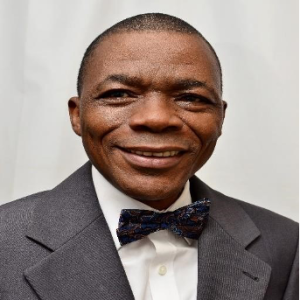Education is the cornerstone of societal progress, yet Nigeria’s education system remains in a precarious state. The absence of a unifying philosophy for governance and education has left the country grappling with systemic neglect. Without collective consciousness and demand for accountability, the essential link between quality education and national development remains weak.
Nigeria’s failure to prioritize education funding undermines the quest for a literate, empowered society. The persistent neglect of public schools, outdated curricula, and a lack of visionary leadership have exacerbated educational challenges.
This article highlights the critical issues affecting Nigeria’s education system and provides actionable recommendations for policymakers and administrators to rebuild the system and ensure it serves all Nigerians equitably.
The Challenge of Economy on Education
The adverse effects of economic austerity on Nigeria’s education system are profound. Budget cuts, corruption, increased tuition fees, and the privatization of education have turned many schools and universities into profit-driven institutions, eroding their foundational purpose of learning and development.
Key consequences include:
-
- Underfunded Public Institutions: Reduced government spending has left schools struggling to provide basic resources, from infrastructure to qualified personnel.
- Rising Costs for Students: Higher tuition fees push education beyond the reach of many families, deepening social inequalities.
- Declining Educational Standards: A focus on cost-cutting often leads to the employment of underqualified teachers, larger class sizes, and diminished learning outcomes.
Addressing these economic challenges requires decisive action, including prioritizing education in budget allocations and curbing corruption to redirect resources effectively.
The Consequences of the Commercialization of Education in Nigeria
The commercialization of education has transformed learning into a privilege rather than a right, exacerbating existing inequalities.
-
- Unequal Access: Only those who can afford it gain access to quality education, leaving millions marginalized.
- Narrowed Curricula: Non-lucrative subjects like arts, history, and physical education are sidelined, depriving students of holistic learning.
- Overburdened Educators: Teachers, often underpaid, are overwhelmed with excessive workloads, leaving little time for effective teaching.
The shift towards privatization has commodified education, undermining its role as a public good. Restoring balance requires public investment, policies promoting equity, and safeguards against profiteering in education.
The Future of Any Nation Depends on Its Youth
Youth are the backbone of a nation’s development, yet Nigeria’s youth are increasingly disadvantaged by a broken education system. The statistics are alarming:
-
- Out-of-School Children: According to UNESCO, almost 20 million Nigerian children are out of school.
- Infrastructural Deficits: Over 60% of schools lack basic infrastructure (UBEC, 2020).
- Technological Backwardness: Nigeria ranks 143rd out of 176 countries in ICT development (ITU) and 124th in global education rankings (BusinessDay NG).
These challenges threaten to trap Nigeria in a cycle of poverty. To break this cycle, the federal and state governments must take decisive action:
-
- Increase Education Funding: Allocate at least 15% of the national budget to education, aligning with UNESCO recommendations.
- Expand Access in Rural Areas: Build and equip at least 1,000 new schools (primary and secondary) in underserved communities across each of the 774 local government areas in Nigeria.
- Invest in ICT Infrastructure: Provide public schools with the technology and digital literacy training required for the modern world.
- Train and Empower Teachers: Equip educators with skills and resources to deliver quality education.
A focused commitment to youth development through education is essential for sustainable national progress.
It’s Time to Make Education Affordable and Accessible
Education is the foundation of a brighter future, yet corruption, negligence, and commercialization are eroding Nigeria’s schools. Policymakers must act urgently to reverse this trend by prioritizing education as a fundamental right.
Key areas of focus include:
-
- Increased Public Investment: Adequate funding ensures schools can meet basic operational and developmental needs.
- Affordable Tuition: Policies should make education accessible to all Nigerians, regardless of socio-economic status.
- Comprehensive Curricula: A broad and inclusive curriculum fosters creativity, critical thinking, and lifelong learning.
- Support for Educators: Fair compensation and professional development opportunities attract and retain quality teachers.
- Establishment of More Schools: Nigeria education policy makers must realised that we need more primary and secondary schools across the country to make education accessible especially in the rural and underserved areas.
Restoring public education as a cornerstone of national development requires collective action and accountability.
Actionable Steps for Policymakers and Education Administrators
-
- Revamp Public School Infrastructure
-
- Renovate dilapidated classrooms and facilities.
- Provide clean water, electricity, and basic amenities to all schools.
- Adopt Technology-Driven Education
- Integrate ICT tools into teaching and learning processes.
- Ensure nationwide access to internet and digital devices for students and teachers.
-
- Promote Equity and Inclusion
-
- Address gender disparities by providing incentives for girls to stay in school.
- Cater to children with disabilities through specialized programs and facilities.
-
- Strengthen Teacher Training Programs
-
- Establish centres of excellence for teacher education.
- Regularly update training curricula to reflect global best practices.
-
- Develop Sustainable Funding Models
-
- Explore innovative funding streams, such as public-private partnerships.
- Establish endowments and trusts to support long-term educational initiatives.
-
- Revamp Public School Infrastructure
Conclusion: Prioritizing Nigeria’s Future
The state of education in Nigeria is a reflection of the nation’s priorities. Addressing the challenges requires more than rhetoric; it demands actionable steps, political will, and community involvement.
Education is not merely an expense but an investment in the next generation. By increasing funding, improving infrastructure, empowering teachers, and ensuring equitable access, Nigeria can lay the foundation for a prosperous and inclusive future.
Policymakers, administrators, and citizens must work together to reclaim Nigeria’s education system, ensuring it serves as a vehicle for national development and social progress. Together, we can make quality education a reality for all Nigerians.











